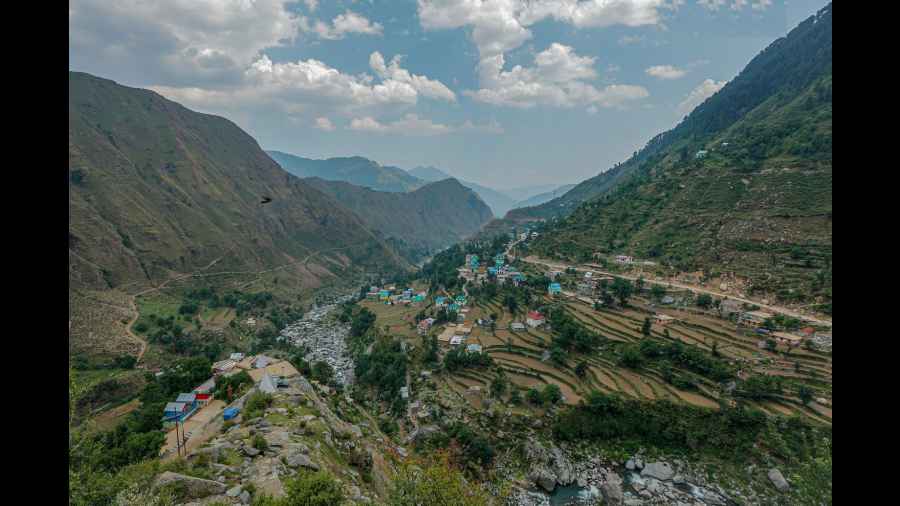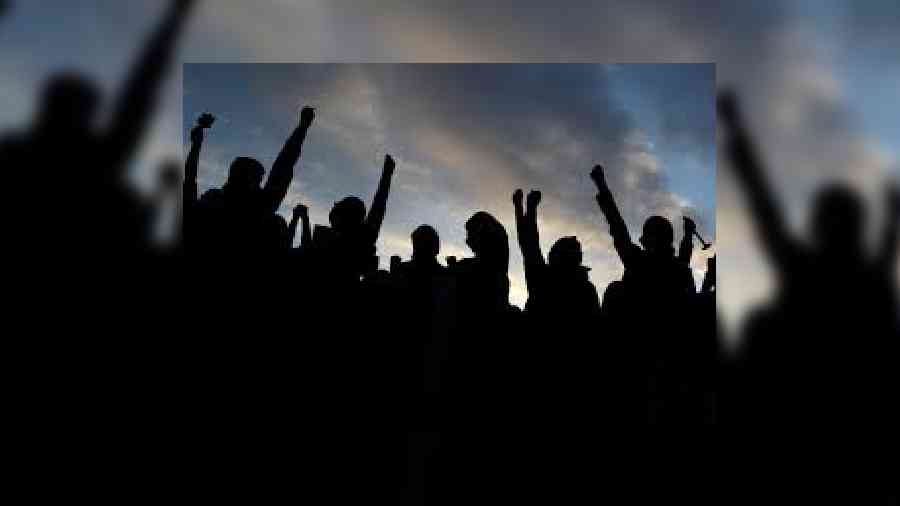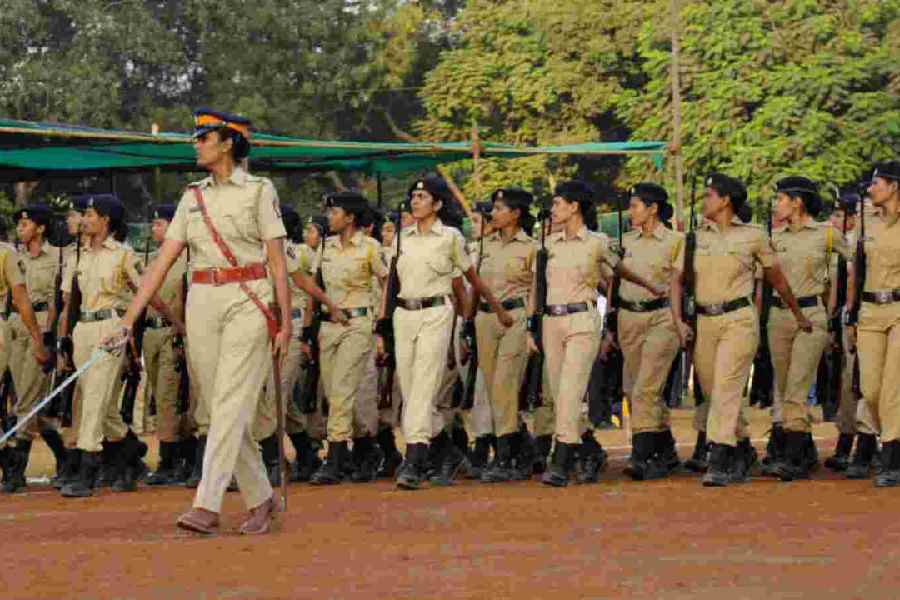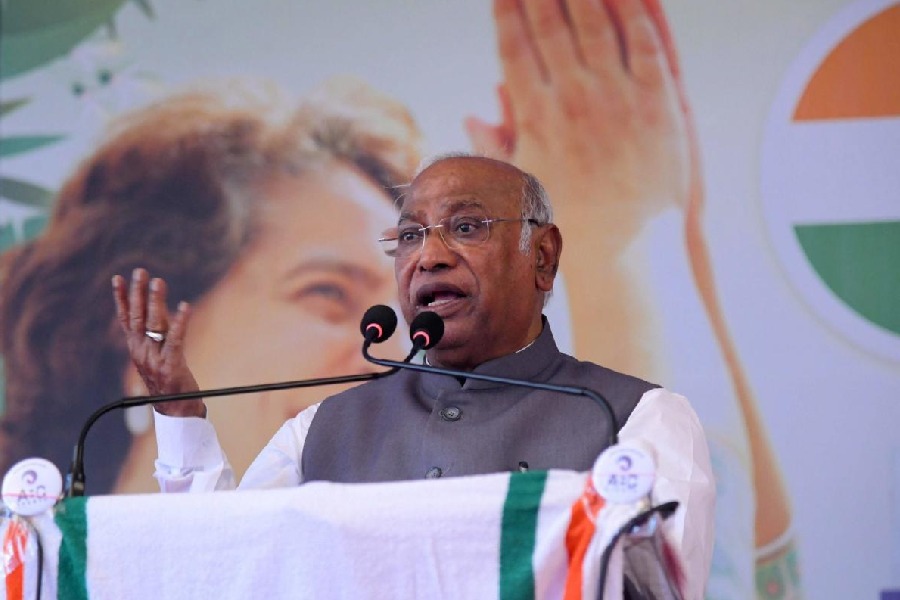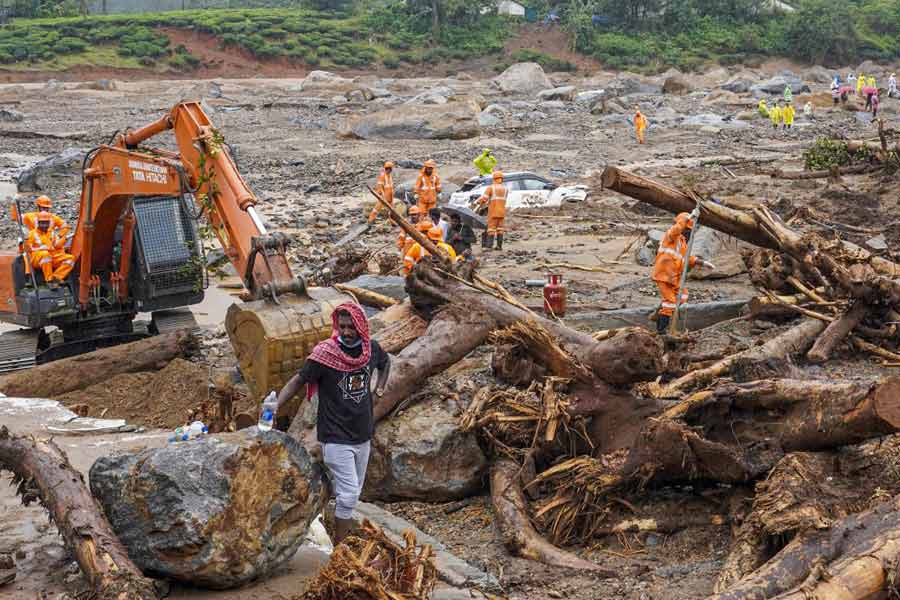Delhi police on Wednesday made the Gandhi Peace Foundation cancel a meeting on the crackdown on the media in Kashmir, days after the Centre hit out at an article in The New York Times on the issue.
The public meeting and a media conference on “Media Blackout and State Repression in Kashmir” were scheduled to be hosted at the Gandhi Peace Foundation in the afternoon by an activist umbrella group called the Campaign Against State Repression (CASR).
Justice Hasnain Masoodi, National Conference MP and a retired judge of Jammu and Kashmir High Court; Sanjay Kak, two-time National Film Awards winner; M.Y. Tarigami, CPM central committee member; and others were invited to the event.
However, around 10.30 in the morning, inspector Sanjeev Kumar, the station house officer of Indraprastha Estate police station, paid him a visit, Gandhi Peace Foundation secretary Kumar Prashant told The Telegraph.
“He gave me the order and said that we should cancel the programme as permission has not been sought, and there is an apprehension of a law and order problem. We have been renting out our premises for years for such events. Never has any permission been required. But of late, the police have started asking us to take permission,” Prashant said. The letter from the inspector with the subject “Regarding issuance of cancellation of booking reg. the Program/ public meeting to be organized by Y4SDU Coordinator…” is dated March 14.
The letter said: “Information/local input has been received that some ‘anonymous” group is planning/organizing public meeting…Efforts to get the details of members of the anonymous group has been made but the same could not be verified. There is discreet input of disturbance in law & order situation in view of organizing this above public meeting. “In view of above, you are requested to cancel the booking & intimation may kindly be sent to undersigned at the earliest.”
The abbreviation Y4SDU is used by the Delhi University unit of Youth for Swaraj — the youth wing of psephologist Yogendra Yadav’s party. Y4S is one of the many student groups in the CASR and Yadav was part of the Bharat Jodo Yatra. Its DU coordinator Puneet Khandodiya said in a video message: “Last night four, five different police officials called me up. They asked me for details of the programme which I gave them in full, and sent them the press note as well, and the estimated number of students to attend, which was 100 to 150.”
Puneet added: “They said they will come and meet me. They didn’t say there was any law and order problem. But at 12pm, I got a call from the GPF and they sent me the letter from the SHO, IP Estate. I was told that they are cancelling the event under pressure from the Delhi police…. This has been done very undemocratically only because we are talking about Kashmir.” Police officers did not respond to emails from this newspaper. The Gandhi Peace Foundation, an organisation founded by leaders such as Jawaharlal Nehru and Rajendra Prasad, is a popular venue for activist meetings near the Income Tax Office in central Delhi. Its gates were barricaded by the police on Wednesday afternoon.
On March 9, the police had prohibited a seminar on “Understanding Fascism in Present India Context” by the Telangana-based Bharat Bachao forum, at the CPM party school building in the same area. Delhi High Court later permitted the event to be held as scheduled on March 11 and 12.
St. Stephen’s College professor Nandita Narain, who was also scheduled to speak on Wednesday at the CASR event, told this newspaper: “The police cancelled the Bharat Bachao seminar in the same manner. Those organisers were able to go to court because the notice was given a few days before the event. The notice to cancel today’s event came just this morning leaving no time for anyone to approach the court for relief. The organisers are students who wouldn’t have gone to court anyway as they don’t have the resources for that.”
The police action came less than a week after Union information and broadcasting minister Anurag Thakur slammed The New York Times for publishing an article that accused the Narendra Modi government of stifling press freedom in Kashmir and the rest of India. This opinion piece was written by Anuradha Bhasin, owner and executive editor of the Kashmir Times, who challenged in the Supreme Court the communication blockade imposed in the region in 2019.
Justice Masoodi told this newspaper: “I would have spoken about the restrictions on the media, if these are new or they already existed and whether they are warranted. I would have also spoken about whether or not there has been excessive use of force.”
He added: “Let us respect each other’s views and the right to life and liberty. I would have spoken about the ways these have been compromised, the release of detainees. These are issues we speak about day in and day out in Parliament. It is the Constitution that is supreme and not the government or any other institution.”
Filmmaker Kak said: “It’s a telling comment that a seminar on the media blackout in Kashmir was cancelled earlier today on the grounds that it might disturb the ‘law and order situation’. It is out of such authoritarian steps that the abhorrent silence around the situation in Kashmir has been constructed. It’s important for people to take note that this silencing does not — and will not — stop at discussions of Kashmir alone: it has already fallen on various expressions of democratic rights in India. And this silence is not simply a matter of choking self-expression. It is fast becoming the throttling of democracy itself.”

